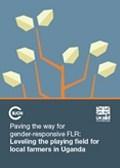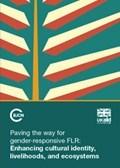Land Library
Welcome to the Land Portal Library. Explore our vast collection of open-access resources (over 74,000) including reports, journal articles, research papers, peer-reviewed publications, legal documents, videos and much more.
/ library resources
Showing items 1 through 9 of 537.Using a participatory rural appraisal approach, a series of qualitative studies were conducted in four countries facing negative impacts of climate change—Bangladesh, Ethiopia, Kenya and Mali—in order to determine men’s and women’s perceptions of climate change, adaptive approaches, and the degre
For more than 30 years, China has undergone economic reforms and development that have led to successful economic growth and poverty reduction.
The International Union for Conservation of Nature (IUCN), in partnership with the Ugandan Ministry of Water and Environment, United Nations Development Programme (UNDP), and the United Nations Environment Programme (UNEP), as well as local governments and
Licuri is a highly valuable tree species, both to local ecosystems and in traditional cultural uses, with a clear commercial niche. Its productive and sustainable uses are directly linked to ecosystem conservation and women’s empowerment—which is being furt
The case studies from Brazil, Burkina Faso, Ethiopia, Ghana, Guatemala, the Philippines and Viet Nam highlight how forest landscape restoration (FLR) interventions enhance food security.
Does economic activity relocate away from areas that are at high risk of recurring shocks? We examine this question in the context of floods, which are among the costliest and most common natural disasters.
This report presents final findings from the baseline data collection exercise conducted for Global Framework for Climate Services (GFCS) Adaptation Programme in Africa.
As climate variability increases, so does the cost of the infrastructure, information and systems needed to cope with it. The biggest impact of climate change in many sectors may well be an increase in the cost of water services.
The coastal zone represents one of the most economically and ecologically important ecosys- tems on the planet, none more so than in southern Africa.





